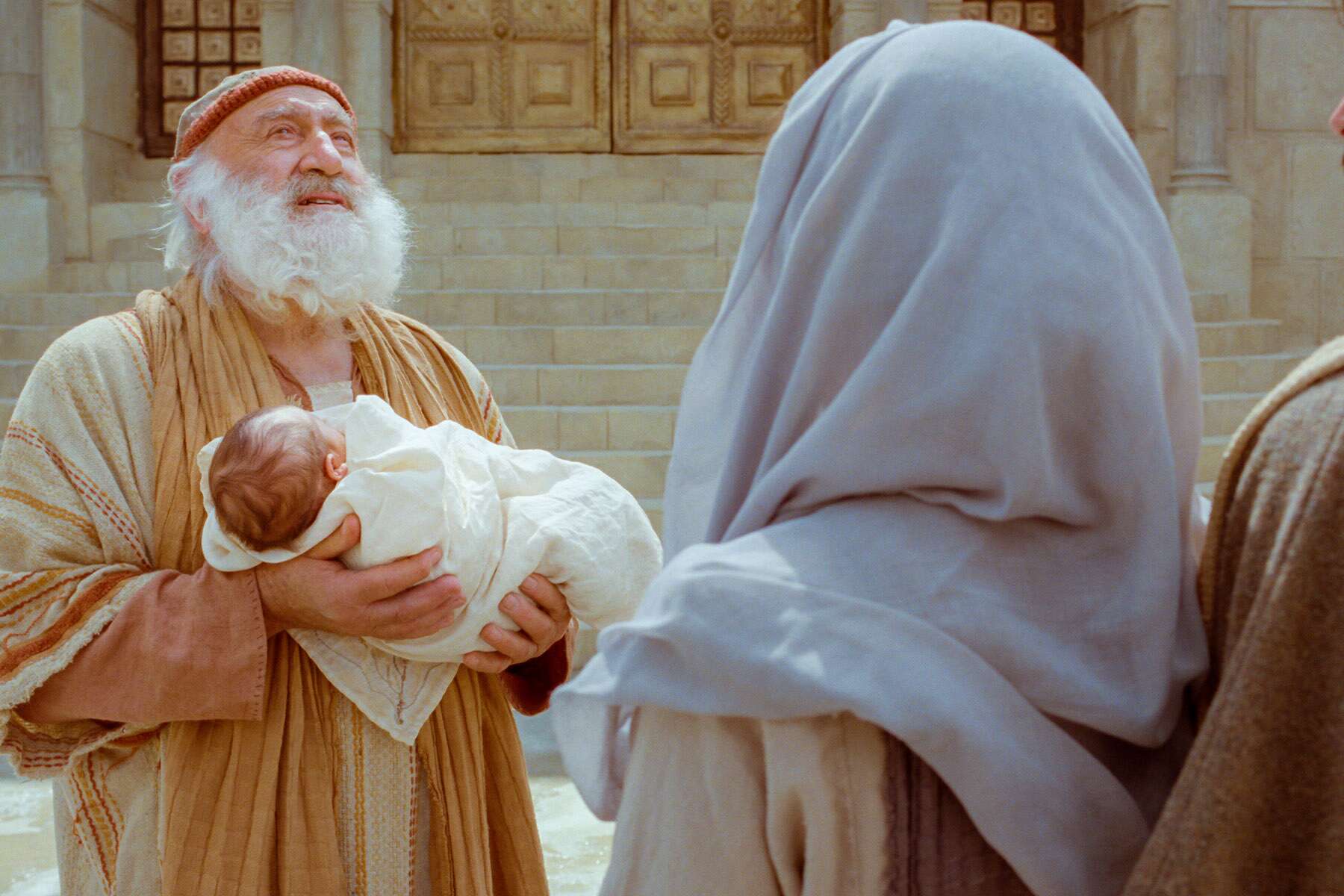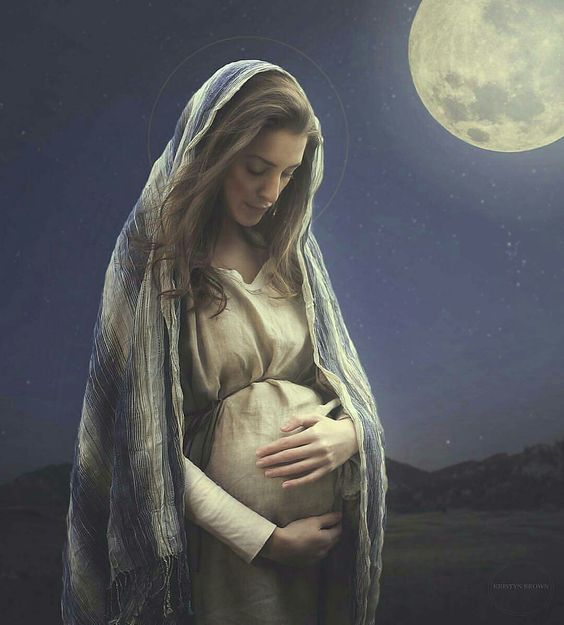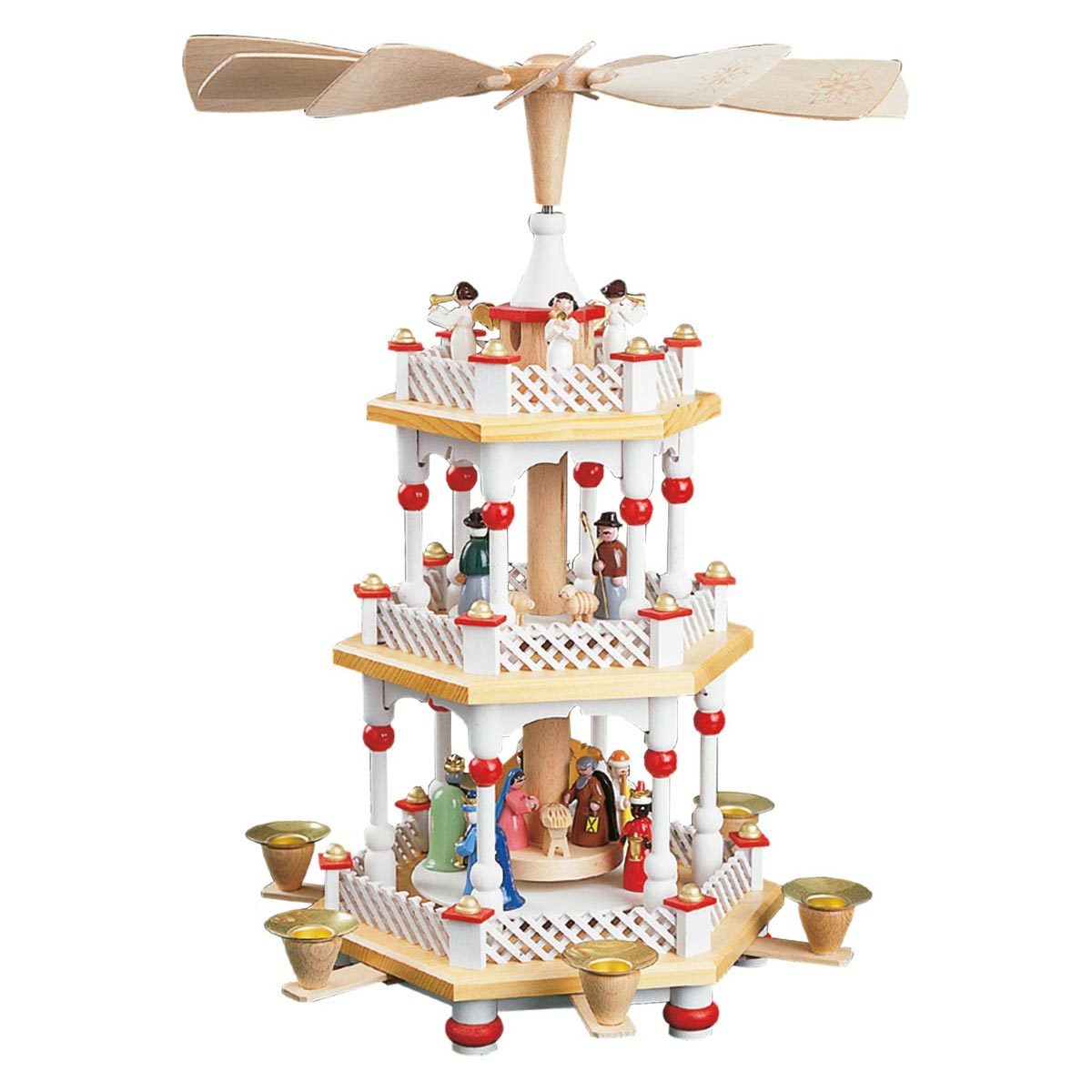
(In order to see the full advent devotional on your phone, press settings, and then click desktop version.)
As Christmas approaches, take time to prepare for the coming of our Lord Jesus by following along through these four weeks of advent readings written by those who call Bethlehem home today. The anticipation of the birth of the Prince of Peace is one that compels us to consider a way of life that reflects that reality. Follow along in the upcoming weeks with your family, small group or church body and engage with the readings, reflection questions and practical implications for Christ’s coming this advent season.

Waiting
By Dr. Salim Munayer
Professor at Bethlehem Bible College
As the Christmas season approaches, I reflect on the events leading to the birth of Jesus and its relevance for us today. I am struck with the depth and insight God gives to us through different characters and situations in this story. One of the central themes in the story of our Savior’s birth is that of waiting. Today we are waiting for the vaccine for COVID-19, waiting for the end of the lookdown, waiting to go back to the “normal life”. In Luke’s gospel, we see faithful people who are waiting – Zechariah, Elizabeth, Mary, and Anna. I ask myself, how can we learn from them within the context of our conflict and COVID-19 here in this land? Waiting takes place in different forms and we see how people in this land are waiting in their own right.
During the last weeks I have been reading Henry Nouwen on the “disciplines of waiting.” In this he shares how waiting is active, not passive. We are “to wait with openness and trust as it is an enormously radical attitude toward life.” And, as we look throughout the scriptures we see that waiting always came with a promise. For example, Zechariah and Elizabeth received a promise that they would bear a son, and with it the courage and the strength to wait. Nouwen writes, “A waiting person is someone who is present to the moment, believing that this moment is the moment.”[1]
Sadly, throughout history, many were unwilling to wait. The prophet Zephaniah criticized the children of Israel for not waiting properly for the Lord. They were busy looking to what was coming, anxious about the future. Fear of the future also influences people today. The overwhelming events around us cause many to run away, move out, or in some cases, lash out against the other.
Nouwen reminds us that we are waiting for something that has already begun inside us. For us, living in the midst of this conflict and COVID-19, we actively wait upon the Lord as we pursue his kingdom and obey his commandment to be peacemakers. For some, waiting is giving up and despairing, yet for us as followers of Christ, our waiting is yearning and preparing for something greater. We are “nurturing the growth of something within,” and we do so with hope! Throughout scripture we see that in waiting there is acknowledgement of God’s promises and trust that God is revealing something that he has already placed within. As a result, every moment we work for peace and reconciliation, we are waiting to see how God will manifest himself in the future. It is a willingness to stay where we are, partake in the work God has appointed for us, persevere in our endeavour, patiently wait for his will, and grow where we are planted.
At the same time, there is a danger in waiting. Some are waiting for a political solution, trusting that our countries’ leaders will come to terms with each other and solve the Israeli-Palestinian conflict and quick solution for COVID-19. Others have given up on waiting and have accepted the status quo. There are also those who are waiting for an apocalyptic and divine intervention that will resolve this conflict once and for all or miracle vaccine. When these things do not come to pass in the way we anticipate, we can become disappointed and give in to despair.
Nouwen reminds us that waiting is open-ended as God is molding us in his direction for the future. Waiting is hard for us because our desires are selfish and we think we can control the future. However, open-ended waiting is relished with hope, a hope in God and with trust in him. During the time of our Savior’s birth, some were waiting for the Messiah with the expectation of deliverance from political persecution, and because of this, they did not recognize him when he came. Yet we see others who waited upon the Lord, and their faithfulness was rewarded, and their hope made manifest.
God always has a plan that exceeds our limited selfishness. God’s plan surpasses our ethnic hopes and aspirations. God sent his son the Messiah to save not just my people, or your people, but all of us. Mary’s waiting for the birth of her son indicated her assurance that God would fulfil his promises, and that he would act in the future. We place our hope in the God, knowing he will complete that which he has started, and we actively wait for him as we pursue his kingdom, waiting for him to put this world to rights. While we wait on God, God waits on us, waiting to see our response to his calling in this world.


Waiting for God’s Promise
By Damaris Nawawra
Graduate of Bethlehem Bible College
Luke 2: 25-32
The Gospel of Luke tells us the story of a man in his last days, that is, in his old age. This man received a promise from God that he would not see physical death before he saw the Lord’s Christ, the Anointed One. Who knows how long Simon waited for the fulfillment of God’s promise to him? Perhaps Simon received God’s promise to him in his youth or even in middle age. Let us reflect on Simon’s story and try to learn, extracting beautiful treasures and a message of hope in this season, the season of Christmas, which is the same season when Simon was consoled.
One of Simon’s most beautiful qualities was that he was a righteous and pious man. He had the heart of a man who feared God and kept himself in love and faithfulness to the Lord, no matter how long it took for His promises to be fulfilled. God does not leave us but rewards our hearts if we seek Him, and provides us with strength from on high. This is what Simon understood. This man reached old age, and one of his defining qualities was that the Spirit of God was upon him. Simon enjoyed a relationship with God as He guided him, spoke to him of promises, and brought him to the temple to show him the fulfillment of His promise. Today, in the atmosphere of Christmas, let us keep our hearts in the fear of God. As we humble ourselves and love God, He will come upon us and fill us with His Spirit, who will help us to see all His promises come true.
Before we hear about the fulfillment of God’s promise to Simon, perhaps we should stop and ask ourselves whether there is a long-awaited promise in our lives? Have we been disappointed in seeing God’s salvation in our lives? Do we have the strength and patience to wait as Simon did, or have we even forgotten that God spoke to us one day?
I thank God for His Spirit, who will remind us and awaken every promise and every word He brought into our lives. Look with me, my brother and my sister, at the word of God. Simon was neither a prophet, nor a priest, nor a strong or famous person, nor was he in a high position, but he was just an ordinary, weak, old man who loved and feared God. In Luke 2:29-30, we see Simon rejoicing with joy and saying that now he can leave this world in peace; he is ready to dismiss his soul to God, for his eyes have seen the salvation of God (the child Jesus) and witnessed the fulfillment of His promise.
Yes, rejoice and be cheerful, no matter how old you are and no matter how long it takes, because in the atmosphere of Christmas, the voices of singing and praise and the announcement of peace rise. “Glory to God in the highest heaven, and on earth peace to those on whom his favor rests” (Luke 2: 14). This day is a message of hope and condolence to everyone whose hope has been disappointed and to everyone who is still waiting for the fulfillment of God’s promise for his or her life. It is a day when we remember that God has fulfilled all His promises to us in Christ Jesus. Through His birth, He completed the work of God by offering us salvation, strength, and comfort.
Is it peace? Yes, peace! And peace to every brother and sister in Christ, so that God will guard our hearts and our minds in His peace, “For no matter how many promises God has made, they are “Yes” in Christ” (2 Cor. 1: 20).
Merry Christmas!


The First Woman Reformist
By Dr. Madleine Sara
Guidance Specialist and Christian Counselor
We are accustomed to reading the story of the Good News and the angel appearing to Mary, foretelling her wondrous pregnancy, as an ordinary familiar Christmas story. We seldom contemplate the heroic, courageous act and sacrifice of a young woman in her prime.
When I imagine Mary, I imagine, in front of me, one of the young women God called me to serve and entrusted to me, caring for them to grow in a life of holiness and piety through a Christ-like life. These are young Palestinian women just growing to understand themselves and understand the call for which they were created. As Middle Eastern women, we suffer from marginalization in a patriarchal and male-dominated culture. We live in a shame culture, and the issues of women, particularly their honor and virginity, are among the thorniest current issues to this day. Under Jewish law, the dire consequences of any girl who was not a virgin was stoning. Similarly, even today, women are killed in many cases, if not according to the Jewish law, then due to influence by the Islamic culture.
Now let us imagine Virgin Mary in my Palestinian community receiving a message from God that is extremely important.
“And behold, you will conceive in your womb and bring forth a Son, and shall call His name Jesus. He will be great, and will be called the Son of the Highest; and the Lord God will give Him the throne of His father David.”
“Then Mary said to the angel, “How can this be, since I do not know a man?”
And the angel answered and said to her, “The Holy Spirit will come upon you, and the power of the Highest will overshadow you; therefore, also, that Holy One who is to be born will be called the Son of God. (Luke 1:32-35)
According to Jewish law, she would be stoned.
“But if the thing is true, and evidences of virginity are not found for the young woman, then they shall bring out the young woman to the door of her father’s house, and the men of her city shall stone her to death with stones, because she has done a disgraceful thing in Israel, to play the harlot in her father’s house. So you shall put away the evil from among you.” (Deuteronomy 22:20- 21)
She would have to face the punishment!
Now imagine, today, that the most amazing, best-known, most reputable and pious young woman stands before her family to tell them that she is pregnant with a miraculous pregnancy and the Holy Spirit was the one who came upon her.
Do we imagine applause, support and celebration?
Or do we expect immediate accusations that she erred, committed adultery, and sinned?
Who would believe such a very strange story? Who would believe a woman? A young girl?
As a woman today, I see that the Nativity story is a heroic story of a woman who was ready to bear the consequences of seeming to disobey her law. But her obedience has had the effect of restoring the glory and dignity of women in general.
I always relate this story to the story of Eve, who disobeyed and spoke to the devil. On the other hand, Mary was found speaking with an angel and she obeyed despite the severe consequences. I do not think she was naive and hasty. But God’s choice of her shows that He knew her capabilities.
“No temptation has overtaken you except such as is common to man; but God is faithful, who will not allow you to be tempted beyond what you are able, but with the temptation will also make the way of escape, that you may be able to bear it.” (I Corinthians 10:13)
This was done through her obedience. When Joseph wanted to secretly leave her, an angel was sent to him in a dream to speak to Joseph, and revealed the matter to him, so he could support her.
Mary’s obedience was costly, but she was the woman who restored dignity for all women for the ages to follow.
Today, as we celebrate Christmas let us reflect on the role of Middle Eastern women. Perhaps they are considered vulnerable and marginalized, but I see many women who are able – despite beliefs, customs, and cultural laws – to rise up to influence their countries and work to fix what has been corrupted. In her obedience, Mary reformed the image and dignity of women, the image that Eve spoiled for centuries and ages, and through her, Mary, came the Savior, the Lord Jesus. Salvation has a work on the earth to redeem humanity from the deformity that afflicts humans, especially women.
Yes, it is the birthday of our Lord and Savior Jesus, but he came to the world through a woman. Could he not have chosen to be found in a basket in a river as Moses was found? No, he chose a woman of known identity; Mary is that woman, and her role is extremely important in the Nativity story.
Therefore, as a woman I meditate on the story of the Good News as an inspirational story to fulfill God’s call and break cultural stereotypes.
The next time you read the Nativity story, think of every Middle Eastern woman who lives in the bondage and grief of a cruel male society, and pray for her. Perhaps the Lord will raise many women with the character of the Virgin Mary, who will face much resistance, perhaps even new forms of stoning, in order to fulfill their call in the kingdom of God and its extension.


The King’s Gift
By Rev. Dr. Nabil Samara
Lecturer at Nazareth Evangelical College
One of the famous decorations of this holy season is the Christmas pyramid. It consists of a pyramidal ornate outer frame with candle holders and a central vortex with a rotor at the top. The rotation of the pyramids is achieved with the help of the hot air that raises from the lit candles. The several levels of carousel are decorated with nativity scenes and other Christmas figurines such as angels, Magi and other motifs.
Christmas pyramids take various forms, colors, and sizes. However, there is one thing common to them. When the candles are lit, the figurine start revolving around the baby Jesus who is in the manger. The Magi carrying their treasures in their hands continue rotating the entire time the candles are lit. It won’t come a moment when they lay down and open their treasure.
Remember they are not real. They are just decorated figurines. It reveals the sad truth. If you are not real, you won’t be able to give your treasure to the King. In the story of the Magi, Matthew informs us that the real ‘wise men’ overjoyed when they saw the star and found the child. They worshiped Him and presented their treasure to the King.
Their deep conviction ‘Jesus is the King’, compelled them to take very dangerous journey from the east. They dared to enter Judea, a foreign territory, and asked a life jeopardizing question “Where is the one who has been born king of the Jews?”. Judea was ruled by a ruthless insane king. Herod was willing to kill even his own sons if he sensed they pose slight rivalry to his crown.
Despite the great threats they had faced, the wise men did not detour from the purpose of their journey. They came all the way to worship Him, a true encounter with the true King. In the second chapter of Matthew, three times Herod is mentioned with his title ‘king’ before the Magi worship the child. He was stripped of his title in the six times (double) he is mentioned afterward. This was because the true king has been crowned with the treasures of the wise men. (Matt 2: 1, 3, 7-9, 12, 13, 15, 16, 19, 22, cf. 10-11). Jesus is the True King.
It is the time to stop playing figurines, rather be real and wise worshiper. Give the true King your treasure that suits him.


